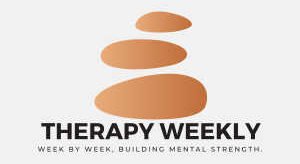
Anxiety, a common yet debilitating condition, affects millions of individuals worldwide. It can manifest in various forms, from generalised anxiety to specific phobias, impacting daily life and overall well-being. Fortunately, effective treatment options exist, with Cognitive Behavioral Therapy (CBT) standing at the forefront of anxiety management. In this comprehensive guide, we delve into the integration of CBT with other therapeutic approaches to offer holistic solutions for overcoming anxiety.
Understanding Anxiety
Before delving into treatment strategies, it’s essential to grasp the nature of anxiety. Anxiety disorders involve excessive worry, fear, or apprehension, often accompanied by physical symptoms such as palpitations, sweating, and restlessness. These symptoms can significantly disrupt one’s quality of life, affecting relationships, work, and personal fulfillment.
Cognitive Behavioral Therapy (CBT): A Cornerstone of Treatment
CBT is a widely recognised and evidence-based approach to treating anxiety. It focuses on identifying and challenging negative thought patterns and behaviours that contribute to anxiety. By restructuring cognitive processes and adopting healthier coping mechanisms, individuals can effectively manage and reduce their anxiety symptoms.
The Integration of CBT with Other Therapeutic Modalities
While CBT is highly effective, combining it with other therapeutic modalities can enhance treatment outcomes, especially for individuals with complex anxiety presentations. Here are some approaches that complement CBT:
1. Mindfulness-Based Therapies: Mindfulness techniques promote present-moment awareness and acceptance, reducing rumination and catastrophic thinking associated with anxiety. Incorporating mindfulness practices alongside CBT can foster greater emotional regulation and resilience.
2. Acceptance and Commitment Therapy (ACT): ACT focuses on accepting difficult thoughts and feelings while committing to actions aligned with personal values. By learning to live with discomfort and uncertainty, individuals can reduce anxiety’s grip on their lives and pursue meaningful goals.
3. Exposure Therapy: Exposure therapy involves gradually exposing individuals to feared stimuli in a controlled manner, allowing them to confront and overcome their anxieties. When integrated with CBT, exposure techniques can desensitise individuals to triggers and break the cycle of avoidance behaviour.
4. Psychodynamic Therapy: This approach explores the unconscious processes and childhood experiences that contribute to anxiety symptoms. By gaining insight into underlying conflicts and patterns, individuals can develop a deeper understanding of their anxiety and work towards resolution.
Practical Strategies for Overcoming Anxiety
In addition to therapy, adopting self-care practices and lifestyle changes can complement anxiety treatment:
1. Prioritise Self-Care: Engage in activities that promote relaxation and stress reduction, such as exercise, meditation, and spending time in nature. Adequate sleep, balanced nutrition, and regular breaks are essential for maintaining emotional well-being.
2. Build a Support Network: Surround yourself with understanding and supportive individuals who can offer encouragement and perspective during challenging times. Joining support groups or online communities can also provide a sense of belonging and validation.
3. Practice Emotional Regulation: Learn to identify and manage intense emotions through techniques like deep breathing, progressive muscle relaxation, and grounding exercises. Developing emotional resilience empowers individuals to navigate anxiety triggers more effectively.
4. Set Realistic Goals: Break larger tasks into smaller, manageable steps to avoid feeling overwhelmed. Celebrate progress and accomplishments, no matter how small, and acknowledge the effort invested in facing anxiety head-on.
Conclusion
Overcoming anxiety is a journey that requires patience, dedication, and support. By integrating Cognitive Behavioral Therapy with complementary therapeutic modalities and adopting practical self-care strategies, individuals can reclaim control over their lives and experience lasting relief from anxiety symptoms. Remember, seeking professional help is a courageous step towards a brighter, anxiety-free future.
For more information on anxiety treatment and therapy options, visit The Author HERE.
This article aims to provide comprehensive insights into overcoming anxiety by integrating Cognitive Behavioral Therapy with other therapeutic modalities. If you’re struggling with anxiety, don’t hesitate to explore the effective treatment options available.



